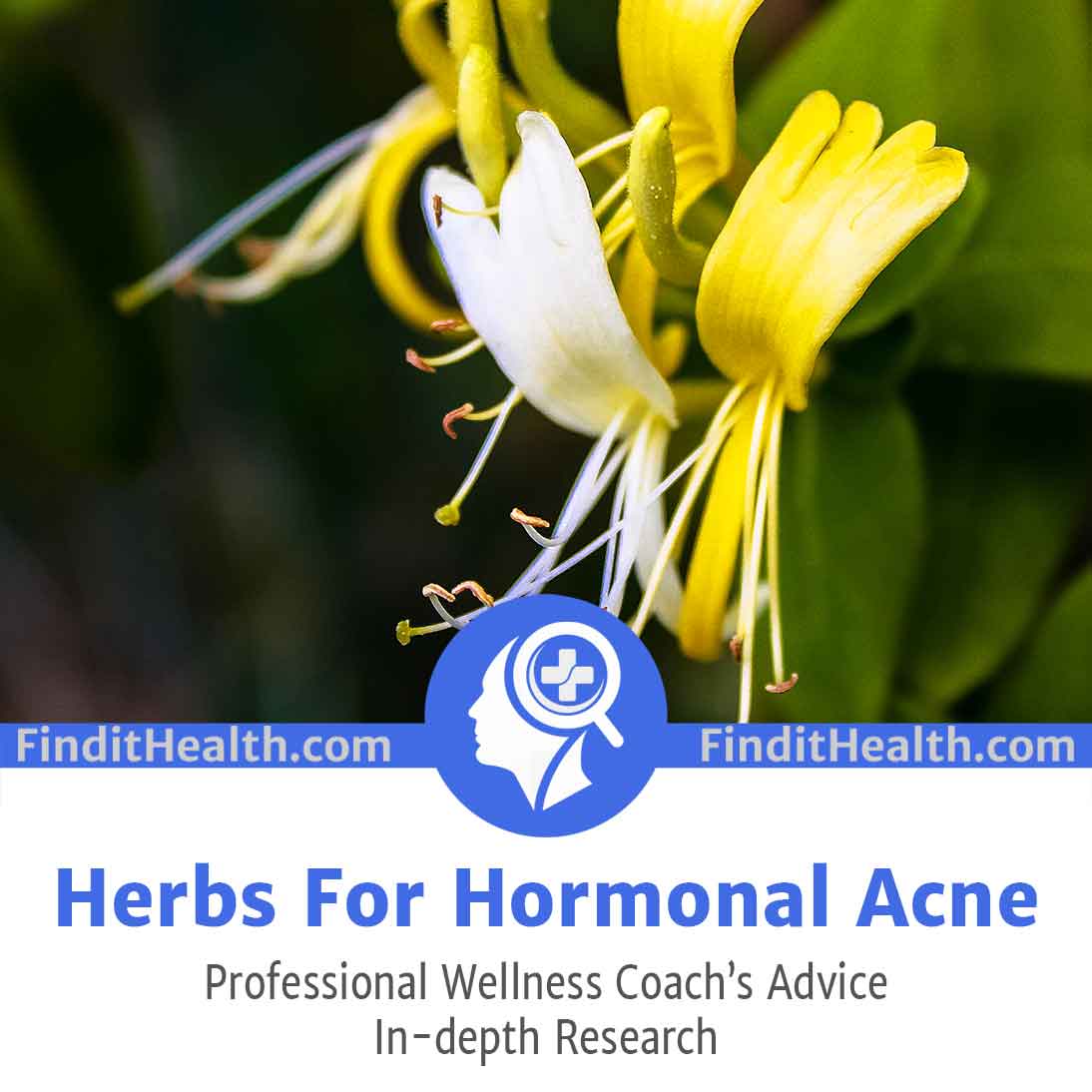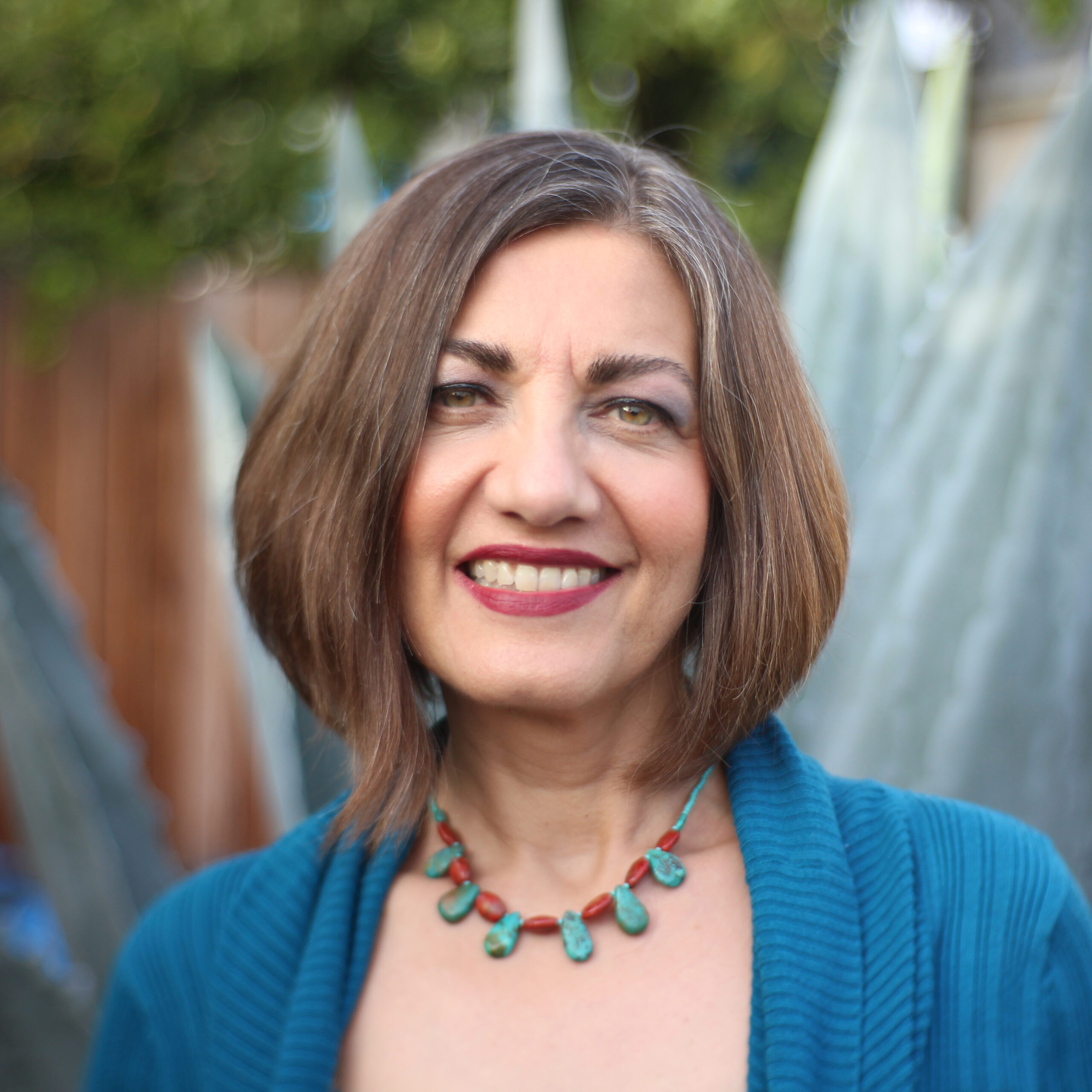
As the lead wellness coach at Find It Health, I aim to provide you with valuable information to effectively manage your health and well-being. In this article, we delve into the world of Chinese herbs for hormonal acne. Hormonal imbalances can wreak havoc on your skin, leaving you feeling frustrated and self-conscious. Ancient Chinese medicine offers a natural and holistic approach to tackling this common concern.
We aim to empower you with the knowledge to combat hormonal acne from within by harnessing the power of time-tested herbs. Discover the potent properties of these herbs and unlock the path to clearer skin.
Which Herbs Are Best For Acne
Herbs used for acne typically possess anti-inflammatory or hormone balancing properties that actively reduce the intensity of acne. Here is a list of herbs utilized in acne remedies.
Lonicera japonica (Jinyinhua)
Often consumed as an herbal tea or in tincture form to utilize its anti-inflammatory properties. This helps soothe acne-prone skin, reducing redness and swelling caused by acne.
Regular use of Lonicera in your skincare routine can complement other acne treatments, contributing to achieving clearer and healthier skin.
Coptis chinensis (Huang Lian)
Usually taken in a powdered herbal formula or tincture form to leverage its antimicrobial effects, combating acne-causing bacteria and preventing further breakouts.
Fructus forsythiae (Lian Qiao)
Used in herbal formulations or teas to aid in clearing toxins and excess heat from the body, potentially benefiting acne by addressing internal imbalances.
Taraxacum officinale (Pu Gong Ying)
It is often consumed as an herbal tea or in tincture form to support liver function and purify the blood, which can benefit severe acne due to its rich vitamins and minerals.
Radix paeoniae rubra (Chi Shao Yao)
Typically incorporated into herbal formulations or teas to assist in reducing inflammation and promoting healing of acne lesions through its anti-inflammatory and antioxidant properties.
Isatis tinctoria (Ban Lan Gen)
Usually consumed in the form of herbal tea or tincture, as it is believed to help clear heat and toxins from the body, which might help manage acne.
Rehmannia glutinosa (Di Huang)
An herb taken in herbal formulations or teas to nourish the Yin and promote skin hydration, potentially aiding in reducing dryness and flakiness associated with acne treatments. This herb’s hydrating properties support a healthier skin barrier and improve overall skin condition, offering potential benefits for individuals managing dry and irritated skin during acne treatments.
Angelica sinensis (Dang Gui)
Dang Gui is used in the treatment of acne to promote healthy skin. It is incorporated into Chinese herbal formulations or teas to rebalance the body and address underlying imbalances contributing to acne. Its active compounds may help reduce inflammation and regulate hormone levels, fostering clear and radiant skin. It also helps in alleviating menstrual cycle pains.
Phellodendron amurense (Huang Bai)
It is prescribed in herbal formulas, addressing internal heat and promoting skin health. It may be applied topically to reduce inflammation, combat acne-causing bacteria, and balance hormones. Consulting a qualified TCM practitioner is essential for personalized treatment and safety considerations.
SUBSCRIBE for FREE STRESS MANAGEMENT TECHNIQUES from our EXPERT COACHES!
Does Chinese Medicine Work For Acne?
For centuries, Chinese medicine, especially Traditional Chinese Medicine (TCM), effectively addresses health issues, including acne. People have reported positive outcomes and improvements in acne management through Chinese herbal remedies, acupuncture treatments, and dietary adjustments.
Chinese herbal remedies
One usage of Chinese herbal medicine is reducing inflammation, which can help with acne. These time-tested remedies achieve therapeutic effects by harnessing the active ingredients of plants, potentially rebalancing the body, correcting hormone imbalances, and supporting the detoxification process. Chinese herbal medicine offers a holistic and personalized approach to health and wellness, utilizing a combination of herbs tailored to individual health needs. Consulting with qualified practitioners ensures safe and effective usage of herbal remedies, optimizing the benefits of these natural therapies in your health journey.
Acupuncture
Acupuncture is another aspect of TCM that some people find beneficial for acne management. This ancient technique is believed to enhance energy flow and restore balance, which can help reduce inflammation and improve skin health. By inserting thin needles into specific acupuncture points, practitioners aim to improve circulation, regulate hormonal activity, and promote the body’s natural healing responses.
Many individuals have reported positive outcomes with regular acupuncture sessions as part of their holistic approach to managing acne. However, individual responses may vary, and consulting with a qualified practitioner is essential to determine the most suitable acupuncture treatment plan for specific skin needs.
Dietary adjustments
In Traditional Chinese Medicine (TCM), practitioners prioritize dietary modifications, acknowledging that certain foods are believed to contribute to acne development, especially those generating damp heat within the body.
Damp heat is considered an imbalance that may manifest as common skin conditions, such as acne. TCM practitioners encourage mindful food choices to balance internal conditions and promote clearer skin.
Always consult a qualified practitioner to personalize dietary adjustments for specific health needs. Examples of damp foods include:
- Spices: Chili peppers, black pepper, ginger, garlic, and cinnamon.
- Onions and leeks
- Coffee and alcohol
- Oily food or greasy foods
- Red meat
- Shellfish
- Nuts, especially peanuts, and cashews
- Processed and spicy foods
- Dairy products
- Refined grains and flour products
- Certain tropical fruits: Pineapple, mango, and lychee.
SUBSCRIBE for FREE STRESS MANAGEMENT TECHNIQUES from our EXPERT COACHES!
Western Medicine
In Western medicine, acne treatment involves:
- Topical treatments
- Oral medications (antibiotics or hormonal pills)
- Procedures (chemical peels, laser therapy)
- Addressing inflammation, bacteria, and clogged hair follicles in the skin’s sebaceous glands
- Considering lifestyle factors (diet, stress, blood sugar levels) that may impact acne, especially in individuals with oily skin.
Combining Western treatments with complementary therapies like Chinese herbal medicine offers a holistic approach to managing this common inflammatory skin condition. Consulting a healthcare professional helps determine the best course of action based on individual needs and skin conditions.
SUBSCRIBE for FREE STRESS MANAGEMENT TECHNIQUES from our EXPERT COACHES!
Breakouts
Breakouts can manifest in different types, each requiring unique attention. In the realm of traditional Chinese medicine, specific Chinese herbs are utilized to address the various types of acne specifically associated with hormonal acne.
Inflammatory Acne
This type of acne is characterized by red, swollen, and painful breakouts. Chinese herbs like Red Peony (Chi Shao Yao) and Lonicera (Jinyinhua) with anti-inflammatory properties soothe redness and swelling, promoting healing and relieving discomfort.
Cystic Acne
Deep, painful cysts under the skin are typical in cystic acne. Chaste Tree (Vitex Agnus-Castus) helps regulate hormones, potentially reducing the occurrence of these stubborn cysts.
Comedonal Acne
Comedones, or clogged pores, are prevalent in this type of acne. White Willow Bark (Bai Liu) aids in exfoliating dead skin cells, preventing pore blockages, and comedonal acne. This herb’s natural salicylic acid content gently removes impurities and helps keep pores clear. In addition to White Willow Bark, other Chinese herbs like Forsythia (Lian Qiao) and Honeysuckle (Jinyinhua) possess detoxifying and anti-inflammatory properties, which can further assist in reducing comedonal acne. Incorporating these herbs into skincare routines or herbal formulations promotes a clearer complexion by addressing the root causes of clogged pores.
Hormonal Acne
Imbalances in hormones trigger this type of acne. Chinese herbs like Chaste Tree (Vitex Agnus-Castus) and Female Ginseng (Dang Gui) regulate hormones, addressing the underlying cause of hormonal acne.
Frequently Asked Questions
Can Chinese Medicine cure hormonal acne?
Chinese Medicine offers effective management and improvement of hormonal acne through its holistic approach. Specific Chinese herbs, such as Chaste Tree, Red Peony, and Licorice Root, actively regulate hormones, soothe inflammation, and address underlying imbalances. For personalized treatment and expert guidance, it is crucial to consult with a certified Chinese Medicine practitioner. Additionally, costs associated with herbal treatments may vary depending on individualized treatment plans.
What is the best herbal medicine for hormonal acne?
There is no single “best” herbal medicine for hormonal acne as different herbs offer unique benefits. Each person’s response to herbal treatments may vary, and consulting with a qualified practitioner helps determine the most suitable herbs for individual needs.
How long do Chinese herbs take to work for acne?
The effectiveness of Chinese herbs for acne and acne marks varies from person to person. Some may experience improvement within a few weeks, while others may take several months to see significant results. Consistency in usage and personalized herbal formulations from a qualified practitioner play a crucial role in achieving optimal outcomes for both acne, acne marks and other skin blemishes.
Conclusion
Research conducted by Find It Health professionals reveals the potency of Chinese herbs for hormonal acne. Remedies like Chaste Tree, Red Peony, and Licorice Root soothe acne-prone skin, reduce redness, and combat acne-causing bacteria when consumed as herbal teas or tinctures. Certified Chinese Medicine practitioners offer personalized treatments, addressing unique needs. Combining Western medicine with complementary therapies presents a holistic approach to acne management, promoting clearer and healthier skin. Before complementing or starting any new skincare routines, it is crucial to consult a qualified healthcare professional first, ensuring safety and suitability for individual conditions. Patience, consistency, and expert guidance lead to positive outcomes in the journey towards improved well-being.

